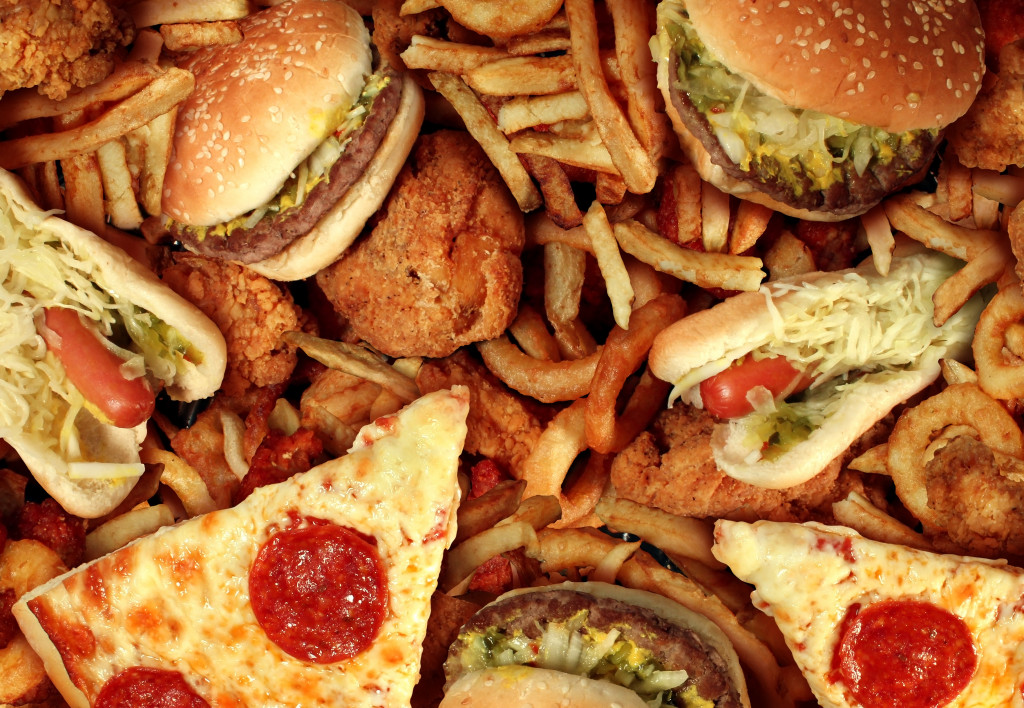- Floor coatings protect facilities from physical damage, chemical spillage, and bacteria growth, enhancing safety and durability.
- Predictive maintenance technology predicts maintenance requirements in a machine or system based on data.
- Cloud-based platforms for data collection and analysis enable easy tracking of trends and performance indicators.
- Advanced quality control software employs sophisticated algorithms and AI to monitor every step of the food processing cycle.
Food processing operations are an integral part of the food industry. As such, they must keep up with the latest innovations to remain competitive and efficient. By taking advantage of these cutting-edge solutions, your business can be sure it is running as efficiently and effectively as possible.
Floor Coatings for Food Processing
Floor coatings for food processing have emerged as one of the best innovations for improving operations. They are specialized floor coverings designed to withstand harsh conditions prevalent in food processing environments. They help protect food processing facilities from physical damage, chemical spillage, and bacteria growth.
Many such coatings are designed to resist high-pressure cleaning, heat, and other environmental factors, making them ideal for use in food processing plants where cleanliness and hygiene are critical. Floor coatings for food processing enhance safety and improve the durability of floors, reducing the need for repairs or replacements. Overall, using floor coatings for food processing enhances operations, ensuring the products’ safety and quality.
Automated Food Processing
Automating food processing is one of the most effective ways to reduce labor costs, improve product quality, and gain a competitive edge in the marketplace. Here are some of the most popular automated solutions for food processing:
Robotics Technology

Robotics technology has incredibly transformed the food processing industry, bringing numerous benefits. Robots in processing plants have enabled manufacturers to achieve higher levels of accuracy, precision, and speed in their operations. Unlike human labor, robots can work tirelessly for hours without exhaustion, significantly increasing productivity.
Equally important is that this technology reduces human error in food processing, which can cause contamination or spoilage. Ultimately, this results in a lower risk of recalls and improves the quality of food products.
Additionally, robotic technology can reliably handle repetitive, dangerous, or inconvenient tasks, freeing human labor to focus on more creative and analytical tasks. In a nutshell, leveraging robotic technology in food processing opens up new possibilities, enabling manufacturers to achieve efficient and sustainable operations while guaranteeing quality, nutritional value, and food safety.
Artificial Intelligence and Machine Learning

Artificial Intelligence (AI) and Machine Learning (ML) have become some of the most significant innovations in today’s technological advancements. Their applications in various industries, including food processing, have opened up more efficient and accurate processing methods.
By employing AI and ML, food processing companies can analyze data and make predictions based on production patterns and demand. This helps reduce the risk of overproduction or waste, ultimately leading to significant cost savings.
With AI and ML’s ability to learn and adapt to changes in production equipment, food processors can guarantee the highest quality products for consumers. As such, integrating these technologies into food processing operations has become imperative, ensuring that food processors stay competitive in the market by delivering high-quality products at a lower cost.
Predictive Maintenance Technology
Predictive maintenance technology has revolutionized how modern industries function and the food processing industry is no exception. This technology uses data analytics, machine learning, and artificial intelligence to predict when maintenance will be required in a machine or system, based on data from sensors and other sources.
This allows for timely maintenance and prevents unexpected downtime, leading to increased efficiency, cost savings, and improved food safety. Not only does predictive maintenance technology benefit food processing plants in terms of production, but it also helps with equipment maintenance and reduces the chances of food contamination. In short, implementing this technology in food processing operations is a progressive step towards a more streamlined and effective industry.
Cloud-based Platforms for Data Collection and Analysis
Cloud-based data collection and analysis platforms have revolutionized the way food processing operations are carried out. This innovation involves using online software that allows for easy collection, storage, and analysis of data related to food processing. The beauty of cloud-based platforms is that they offer a centralized location for all data, which can be accessed from anywhere, at any time.
One of the key benefits of this innovation is that it makes it easier to track trends and performance indicators, enabling more informed decision-making. With improved data analysis, food processing operations can reduce waste, streamline processes, and ultimately increase profits. Overall, using cloud-based platforms for data collection and analysis is a major step toward the future of the food processing industry.
Advanced Quality Control Software
Advanced quality control software is one of the best innovations in the food processing industry for improving operations. This software program employs sophisticated algorithms and artificial intelligence to monitor every step of the food processing cycle, ensuring that quality standards are met consistently.
By capturing and analyzing data in real time, this software helps food companies to identify and address quality issues quickly, thus saving time and resources. In addition, this technology also ensures that products are safe for consumers to consume, fulfilling essential food safety regulations. With advanced quality control software, food production becomes more efficient, accurate, and reliable, benefiting businesses and consumers.
These are just some of the latest innovations in food processing that are transforming how operations are carried out. Your business can improve its efficiency and effectiveness by utilizing these advanced solutions.




